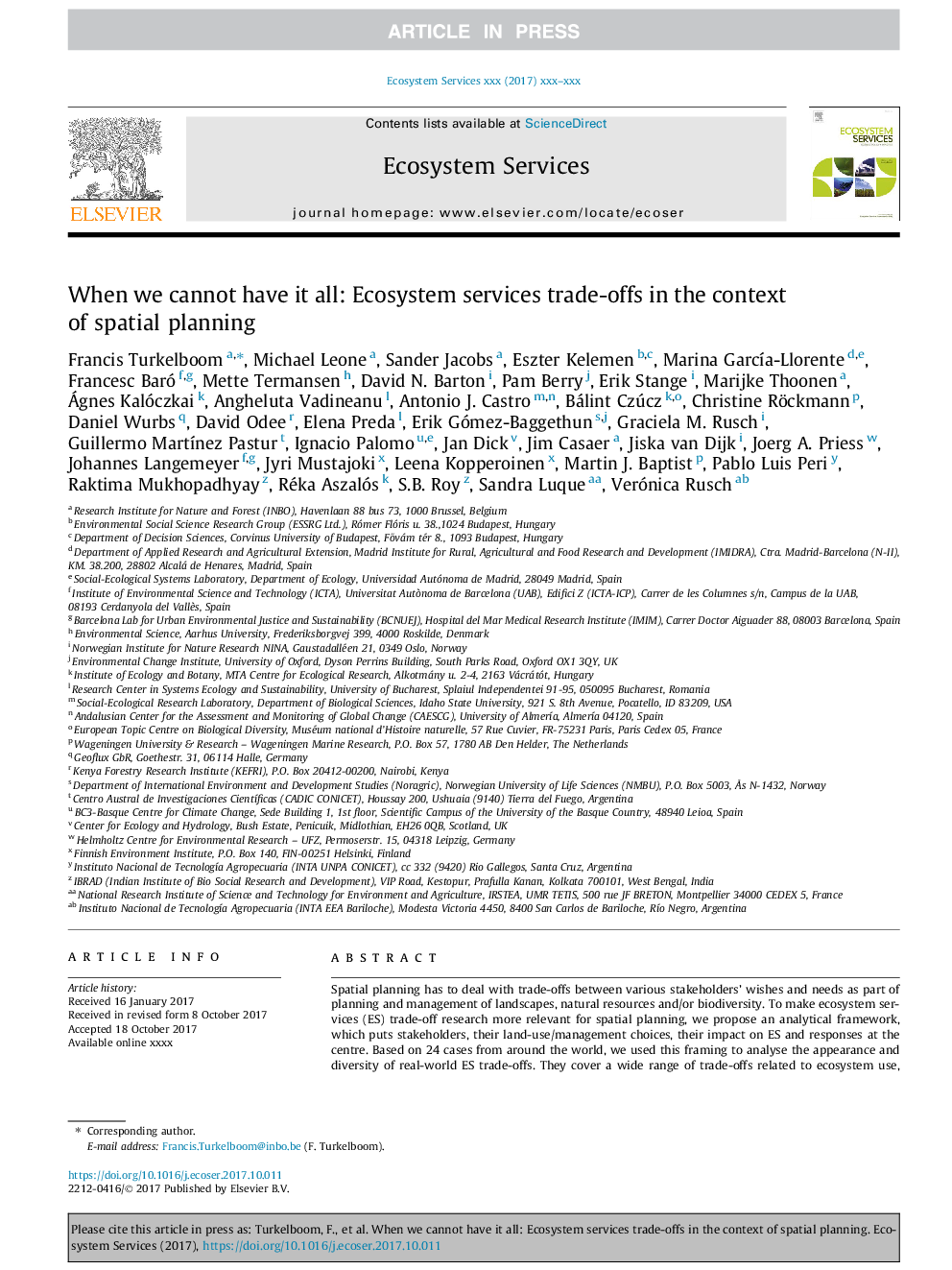ترجمه فارسی عنوان مقاله
هنگامی که ما نمی توانیم همه اینها را داشته باشیم: تجارت خدمات اکوسیستم در شرایط برنامه ریزی فضایی
عنوان انگلیسی
When we cannot have it all: Ecosystem services trade-offs in the context of spatial planning
| کد مقاله | سال انتشار | تعداد صفحات مقاله انگلیسی |
|---|---|---|
| 109411 | 2018 | 13 صفحه PDF |
منبع

Publisher : Elsevier - Science Direct (الزویر - ساینس دایرکت)
Journal : Ecosystem Services, Volume 29, Part C, February 2018, Pages 566-578
ترجمه کلمات کلیدی
چارچوب تحلیل تحلیلی، استفاده از اکوسیستم، رژیم های اموال، پاسخ های متقابل، مطالعات موردی واقعی در جهان،
کلمات کلیدی انگلیسی
Trade-off analytical framework; Ecosystem use; Property regimes; Stakeholder responses; Real-world case studies;

